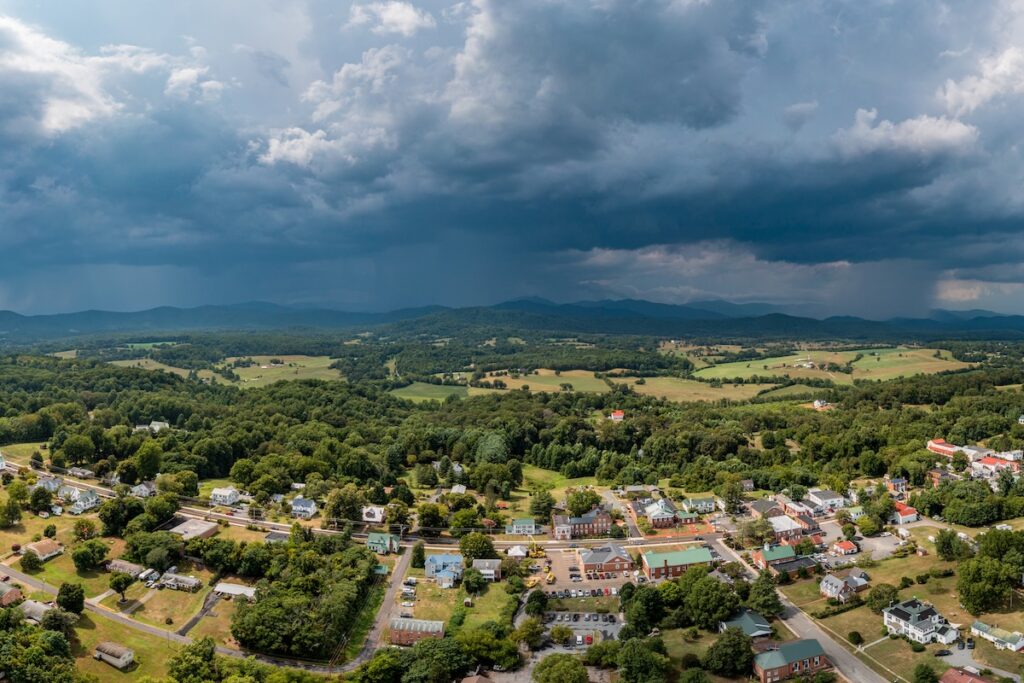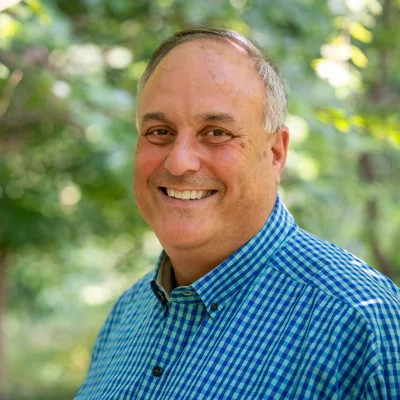After a hard winter, with measurable snow cover for over a month, damaging wind storms, inevitable frustrations with a closely divided General Assembly, and unprecedented presidential actions disrupting federal conservation, environmental, and energy policy, I look for signs of hope this spring. Emerging plants, the first flowers, news of the annual migration of salamanders and the sound of birds and frogs all herald new possibilities.
At The Piedmont Environmental Council, we are reaffirming our dedication to conservation and restoration of the Piedmont’s land and waters, to community planning and design, and to reform for data centers and the energy infrastructure they demand. We’re excited by continuing enthusiasm for the Virginia Grassland Bird Initiative, with a full roster of landowners signed up to help protect critical habitat. We are working with partners on promising conservation projects all across the region. Especially in the Charlottesville area, and hopefully at Oak Hill in Loudoun, momentum is growing for new trails and new public access to open spaces. And we are raising the profile of the impact of data centers and the energy they require locally, in Virginia and across the United States.
At our Annual Gathering (a renamed annual meeting) this spring, we will celebrate the incredible vision of the Akre family for the future of Eldon Farms. Thomas Woltz, owner of Nelson Byrd Woltz Landscape Architects, will give a keynote presentation on the restoration and conservation plan for these 7,200 acres that link the Appalachian ecosystem along the Blue Ridge Mountains and Shenandoah National Park to the wildlife corridors and working lands of the Upper Rappahannock River watershed. The model provided by Eldon Farms can inspire others to invest in conservation, remove invasive species, and restore native habitats while enabling farming and forestry activities to continue.

At the same time, real challenges lie ahead. Over the past three months, the Virginia General Assembly has debated state policies that are central to PEC’s mission, values and programs. The Piedmont region is at the center of a new economy based on global cloud computing and artificial intelligence. We are converting arable farmland with adequate water supply into data centers, substations, industrial-scale solar, transmission lines and battery storage. Many of these farms and other lands at risk are excellent locations for stream restoration, wetlands protection, improvement of riparian habitats for wildlife, and public access. Often, they also contain important historical and cultural resources.
Land for data centers and energy infrastructure also competes with housing and amenities for our existing and projected population, driving the cost for new housing dramatically upward, despite relatively small population growth and nearly full employment.
In response to these pressures, the General Assembly session also weighed how much authority and determination local governments versus state agencies should have around such issues. Narrow majorities want state mandates rather than deliberate and careful modifications with local self-determination. PEC and the Coalition for Smarter Growth believe that a more sustainable future depends on local and regional planning that takes into account location efficiency and community design.
The increasing volume of federal mandates to expand energy infrastructure and suspend longstanding protections for communities and conservation values concerns us, as well. In recent weeks, the Trump administration has moved to eliminate the review of projects funded and permitted under the National Environmental Policy Act. And with an executive order declaring a “national energy emergency,” the administration is pursuing a dramatic expansion of fossil fuel exploration and natural gas and electrical infrastructure while simultaneously suspending existing environmental laws to protect air, water, wildlife and historic and cultural resources.
But hope springs eternal and, with your support and engagement, we will continue progress toward more conservation, restoration and better planning for the future. Your efforts to directly address your concerns to local, state, and federal officials, combined with direct action to conserve, restore, and sustain the lands and waters of the Piedmont are a model for the future, a bright light of hope in a darkened world. PEC staff have carried your message, highlighting the importance of local self-determination and prioritizing community and natural resource values.
Sincerely,
Chris Miller, President

This letter appeared in the 2025 Spring edition of The Piedmont Environmental Council’s member newsletter, The Piedmont View. If you’d like to become a PEC member or renew your membership, please visit pecva.org/join.
